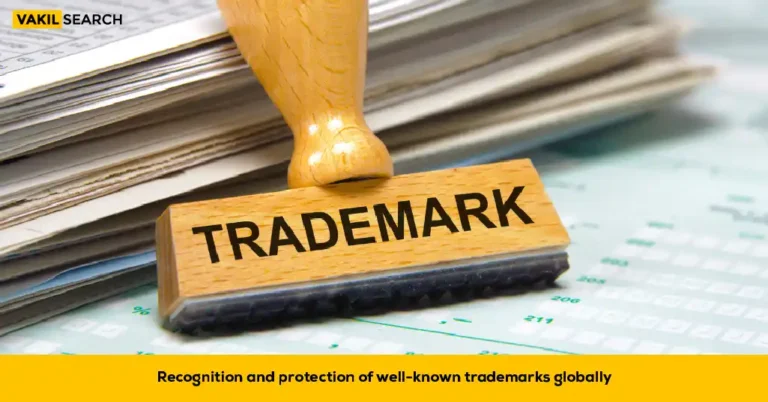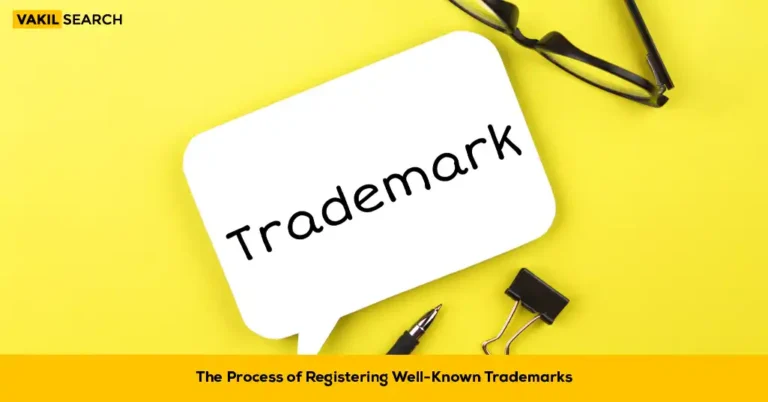Unlock the potential of trademark licensing to expand your brand's reach. Discover the benefits, considerations, and legalities involved in licensing your trademarks for strategic growth.
Trademark licensing is a strategic business practice that enables trademark owners to extend the reach of their brands while maintaining control over their intellectual property. By partnering with reputable licensees, businesses can capitalize on new markets, product categories, and revenue streams.
In this article, we’ll explore the nuances of trademark licensing and highlight how Vakilsearch’s expert services can facilitate seamless licensing agreements for businesses in India.
Understanding Trademark Licensing:
- Definition and Scope: Trademark licensing involves the authorized use of a trademark by a third party under specific terms outlined in a licensing agreement.
- Types of Licensing Arrangements: From exclusive licenses granting sole rights to non-exclusive agreements allowing multiple parties to use the trademark, there are various licensing structures to accommodate diverse business needs.
Benefits of Trademark Licensing:
- Brand Expansion: Licensing enables businesses to expand into new markets and product categories without the need for substantial capital investment.
- Revenue Generation: By licensing their trademarks, businesses can generate additional revenue streams through royalty payments from licensees.
- Risk Mitigation: Partnering with reputable licensees can help mitigate the risks associated with market expansion while leveraging their expertise and resources.
Key Considerations for Trademark Licensing:
- Due Diligence: Both licensors and licensees should conduct thorough due diligence to assess the compatibility of brands, market potential, and legal requirements.
- Clear Licensing Terms: Comprehensive licensing agreements should delineate rights, obligations, quality standards, royalty payments, and termination clauses.
- Quality Control Measures: Implementing robust quality control measures ensures that licensed products or services maintain the brand’s standards and reputation.
Common Pitfalls to Avoid:
- Lack of Quality Control: Inadequate quality control measures can lead to subpar products bearing the licensed trademark, damaging the brand’s reputation.
- Over-Licensing: Excessive licensing agreements with incompatible or low-quality licensees can dilute the brand’s exclusivity and diminish its value.
- Inadequate Legal Protection: Businesses must safeguard their intellectual property rights through comprehensive licensing agreements and trademark registrations.
Maximizing the Benefits with Vakilsearch:
- Expert Guidance: Vakilsearch provides expert legal guidance to businesses throughout the licensing process, from drafting agreements to ensuring regulatory compliance.
- Tailored Solutions: Our team offers customized solutions tailored to the unique needs of each client, helping businesses navigate complex licensing arrangements effectively.
- Seamless Execution: With Vakilsearch’s support, businesses can streamline the licensing process, mitigate risks, and maximize the benefits of trademark licensing.
Conclusion:
Trademark licensing offers businesses a strategic avenue for brand expansion, revenue generation, and risk mitigation. By leveraging Vakilsearch’s expertise and services, businesses can navigate the complexities of licensing agreements with confidence, ensuring legal compliance and protecting their valuable intellectual property assets. With Vakilsearch as your trusted partner, you can unlock new opportunities for growth and success in the competitive marketplace.
Trademark Licensing: FAQs
What is trademark licensing?
Trademark licensing involves granting permission to third parties to use trademarks under specified conditions, allowing licensees to exploit the goodwill and reputation associated with the brand for commercial purposes.
How do trademark licenses differ from other forms of intellectual property agreements?
Trademark licenses specifically grant rights to use trademarks, whereas other intellectual property agreements may cover patents, copyrights, or trade secrets, each with distinct rights and restrictions.
What are the benefits of trademark licensing for brand owners?
Trademark licensing allows brand owners to generate additional revenue streams, expand market reach, enter new product categories or geographic markets, and enhance brand visibility through licensed products or services.
What types of trademark licenses are commonly used?
Common types of trademark licenses include exclusive licenses, non-exclusive licenses, territorial licenses, product category licenses, and sublicensing arrangements, each tailored to the specific needs and objectives of the parties involved.
How do trademark owners maintain quality control over licensed products or services?
Trademark owners maintain quality control through licensing agreements, specifying quality standards, branding guidelines, inspection rights, and termination provisions to safeguard the integrity of the licensed brand.
What considerations should brand owners evaluate when selecting licensees?
Brand owners should assess potential licensees' reputation, financial stability, operational capabilities, and alignment with brand values to ensure compatibility and minimize risks associated with licensing arrangements.
How do trademark licensing agreements address intellectual property rights and liabilities?
Trademark licensing agreements define the scope of licensed rights, ownership of intellectual property, indemnification obligations, liability limitations, and dispute resolution mechanisms to mitigate legal risks for both parties.
What role do trademark registration and enforcement play in licensing agreements?
Trademark registration provides evidence of ownership and validity, strengthening licensors' rights and enhancing the value of licensed brands, while enforcement provisions address infringement, breach of contract, or termination triggers.
Can trademark licenses be revoked or terminated?
Trademark licenses may be subject to revocation or termination based on contractual provisions, breach of license terms, non-payment of royalties, failure to maintain quality standards, or changes in business circumstances affecting the licensee's operations.
What strategies can brand owners employ to maximize the benefits of trademark licensing?
Brand owners can maximize the benefits of trademark licensing by conducting due diligence on potential licensees, negotiating favorable terms, monitoring compliance with license agreements, and leveraging licensing revenues to reinvest in brand development and expansion.










